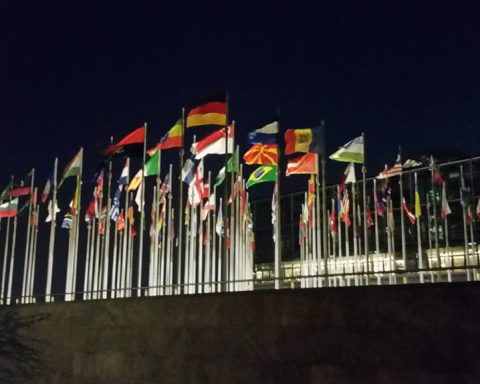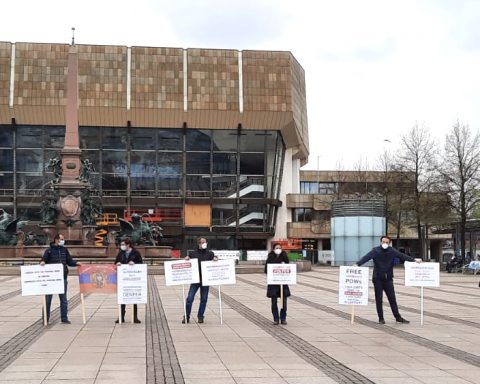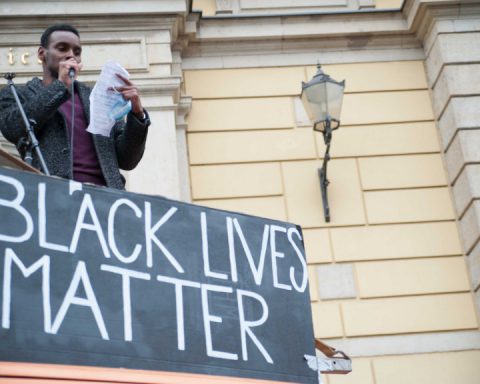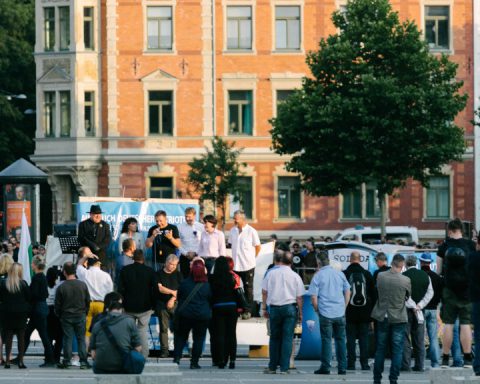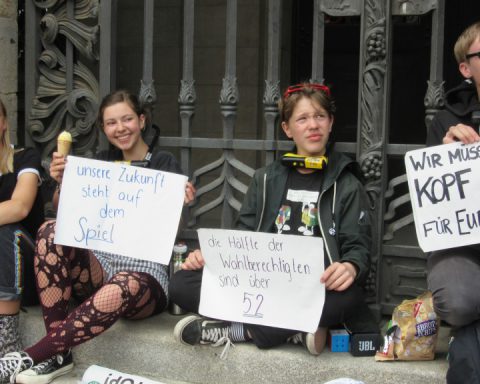There are 1.2 million Brits living in the EU who stand, under the current withdrawal agreement, to lose their free movement after Brexit. Many of these Britons moved to the continent, some decades ago, with their free movement rights still intact and built their lives around these rights.
The question of removing rights is not only ethically questionable, but also stands to destroy the livelihoods of millions.
Take Fiona, a Brit living in Luxembourg. For the last 20 years, she’s been working continuously across borders as a lawyer. Under the current draft withdrawal agreement, she will no longer be able to work like this. It will massively restrict her opportunities to work and earn.
You may ask: But what about the Americans, Australians, and other third country nationals here in Europe too, they seem to be fine?
What is not being recognised is that life can be particularly difficult for third country nationals. Unlike their European peers, they cannot simply take a job in whichever country in Europe offers them one. They tend not to have the luxury of doing regular cross-border work to support themselves.
This is what Britons now face post-Brexit, should we walk away with no deal. With such outcome in mind, British in Europe (BiE) has grown into the largest coalition of Brits living in Europe who are campaigning for free movement rights.
Along with coalition member British in Germany, the group is producing a video campaign highlighting positive cases of free movement – and how losing this right would affect Brits.
The first video features Alex, a 40-year-old woman from Surrey. After years working in a different field, she decided to change her career path and moved to mainland Europe to pursue a career in gaming.
https://www.youtube.com/watch?v=i_jvSj9MJCE
Having lived in France, Belgium, Hamburg, and now in Berlin, she emphasises how vital it is for people, particularly in her field, to be able to use their free movement: “The nature of the games industry is that you need to be ready to move anywhere in order to follow the opportunities.”
Alex poignantly explains how the loss of free movement also stands to affect those who are most vulnerable in our society: “It is a common trait of people with autism to thrive on stability.”
At the moment I do not know what is going to happen, and that is massively affecting my mental and physical health.
Alex is not wrong.
Approximately one in four people suffer from mental health issues. The Guardian even recently published an article stating that in a survey of 1,300 remain voters, many were still traumatised by the UK’s decision to leave the European Union. As a result, a team of five therapists and psychologists from north London have offered to hold up to 10 free therapy sessions to those who are suffering from “Brexit anxiety.”
https://www.youtube.com/watch?v=1rIrrjC2uDY
The videos made so far by BiE are to act as a springboard for others across Europe, the UK, and even the world, to send in their own videos and share their own stories.
In an instructional video, two members of British in Germany rightfully point out that even Europeans who do not stand to lose their free movement can participate in the video campaign. They can make a video showing how contact with Britons who have used free movement has positively impacted their lives.
https://www.youtube.com/watch?v=cdz2OzDoHrA&t=3s
Under the hashtag #KeepFOM – Your Story, the campaign opens itself up to the world to act as a rallying call to the UK government to put free movement back on the table in negotiations, taking into consideration the impacts being highlighted in the video testimonies.
Submitting a video is relatively simple. You can either upload your video to Dropbox, sharing the file with British in Europe (bievideocampaign@gmail.com), or leave a video message for British in Europe on Skype. Then all you have to do is fill out a short permission form to allow British in Europe to use your video.
Last Saturday, 100,000 people protested in London for their right to vote on a final Brexit deal. This is not even 10% of the number of Brits in Europe – who each have their own story, their own voice, which deserves to be heard in these negotiations.
The negotiations are not over yet. There is still time to change the outcome for the 1.2 million Brits living in Europe, and each and every video submission will lend a voice to the fight for this.
By Emma Corris

Guidelines:
Videos should be no longer than 2-3 mins ideally. They should highlight why freedom of movement is important to your life both past and present, and what it would mean to lose this going forward.
You can find more information in our instructional video and in the descriptions below the videos. All videos will be posted to our video campaign YouTube channel, and on our social media and web outlets.
For any questions or concerns, please email KeepFOM@britishineurope.org.


